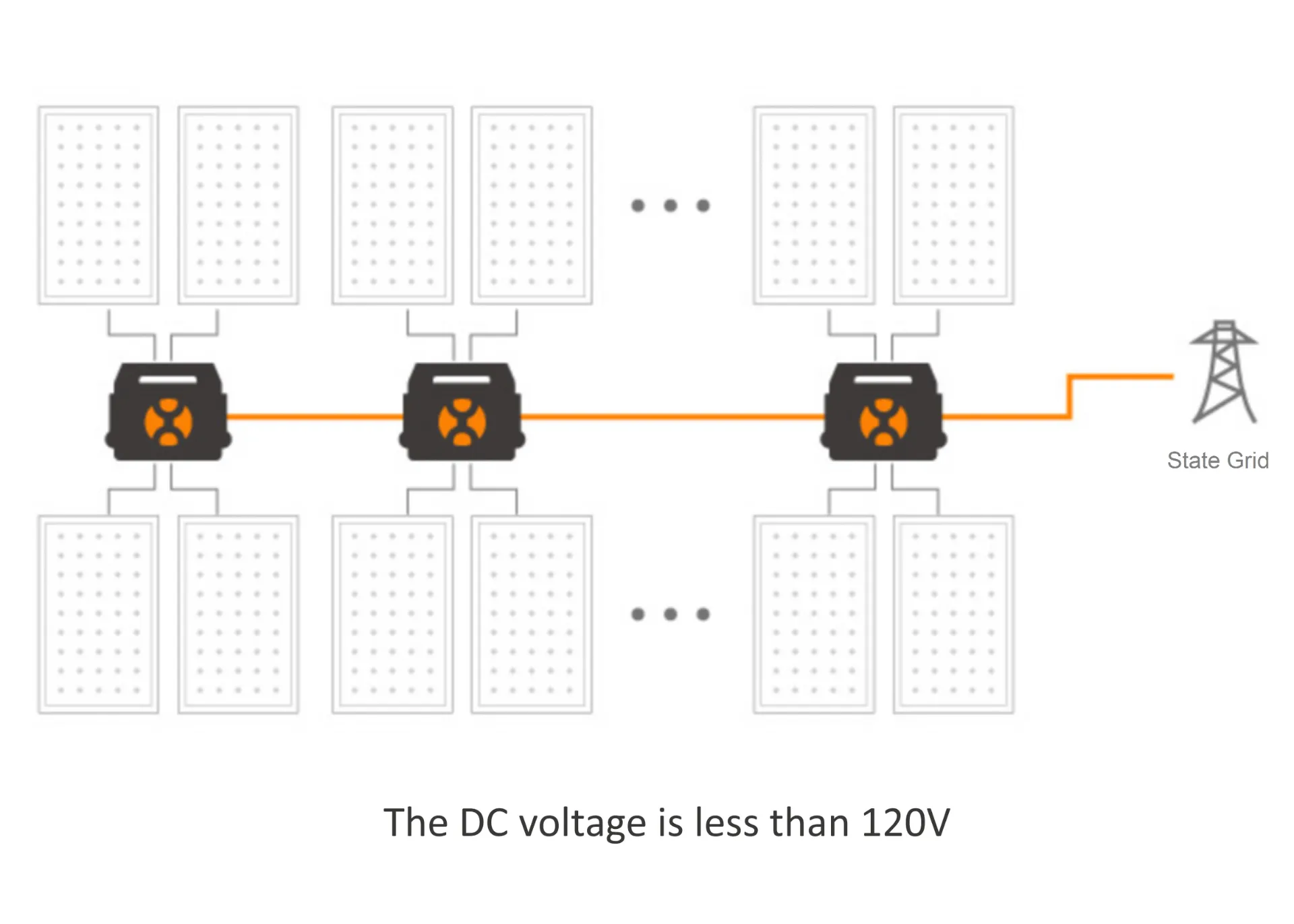Unlock the Full Potential of Solar Energy with Advanced Solar Inverters
As solar energy continues to gain popularity, understanding the critical components of a solar power system becomes essential. One of the most important elements is the solar inverter, which plays a pivotal role in converting and optimizing the electricity produced by your solar panels. If you’re exploring options and seeking a solar inverter for sale, it's crucial to understand the various types of solar inverters available and their unique benefits. This knowledge can help you make an informed decision and maximize the efficiency of your solar energy system.

What Does a Solar Inverter Do?
A solar inverter is responsible for converting the direct current (DC) electricity generated by solar panels into alternating current (AC) electricity, which is used by most household appliances and can be fed into the electrical grid. This conversion is essential for integrating solar energy into your home or business.
In addition to its primary role in energy conversion, a solar inverter performs several other important functions:
- Maximum Power Point Tracking (MPPT):The inverter continuously adjusts to the optimal voltage and current conditions to maximize the power output from your solar panels.
- Monitoring and Diagnostics:Many modern inverters come with monitoring features that allow you to track the performance of your solar system, detect issues, and ensure efficient operation.
- Grid Interaction:For grid-tied systems, the inverter ensures that the AC electricity produced matches the frequency and voltage of the grid, allowing for seamless integration.
Types of Solar Inverters
When looking for a solar inverter for sale, it's important to understand the different types of solar inverters available and how each can impact your solar energy system:
String Inverters:
- Overview:String inverters are the most common type used in residential and commercial solar installations. They connect multiple solar panels in series, or a “string,” to convert the DC electricity from all the panels into AC electricity.
- Advantages:They are cost-effective and relatively simple to install.
- Considerations:Their performance can be affected if one panel in the string is shaded or not functioning properly.
Microinverters:
- Overview:Microinverters are installed on each individual solar panel, allowing each panel to operate independently.
- Advantages:They offer higher efficiency and performance, especially in installations with shading or varying panel orientations. Microinverters can optimize the output of each panel, potentially increasing overall system performance.
- Considerations:They are generally more expensive than string inverters but can provide better energy yields in complex installations.
Power Optimizers:
- Overview:Power optimizers work alongside a central string inverter. Each panel has its own optimizer that maximizes the performance of that panel before sending the DC electricity to the central inverter.
- Advantages:This technology combines some benefits of microinverters with the cost-effectiveness of string inverters. It can help mitigate issues related to shading and panel mismatch.
- Considerations:They require a compatible string inverter and can be more complex to install.
Hybrid Inverters:
- Overview:Also known as battery-based inverters, hybrid inverters can manage both solar energy and energy storage systems.
- Advantages:Ideal for those who want to store excess solar energy in batteries for use during non-sunny periods or power outages. They provide greater flexibility in energy management.
- Considerations:They tend to be more expensive due to their advanced features and integration with battery storage.
Choosing the Right Solar Inverter
When selecting a solar inverter, consider the following factors:
Efficiency: Look for an inverter with high efficiency to ensure optimal energy conversion. The efficiency of a solar inverter can impact the overall performance of your solar system.
Warranty and Reliability: Consider the warranty period and reputation of the manufacturer. A longer warranty and a reputable brand are indicators of a durable and reliable product.
Compatibility: Ensure the inverter is compatible with your solar panel system and meets your energy needs. It should be able to handle the total DC capacity of your solar panels and provide the necessary AC output.
Features: Modern inverters often come with advanced features such as monitoring capabilities, remote access, and diagnostic tools. These features can help you track the performance of your system and address any issues promptly.
Solar Inverter Price and Manufacturers
그만큼 solar inverter price can vary based on the type, efficiency, and brand. String inverters are generally more affordable compared to microinverters or hybrid inverters. However, the investment in a higher-quality inverter can lead to better performance and long-term savings.
When purchasing a solar inverter, choose a reputable solar inverter manufacturer known for high-quality products and excellent customer support. Leading brands like SMA, SolarEdge, Enphase, and Fronius offer a range of inverters to suit different needs and budgets.
Investing in the right solar inverter is crucial for maximizing the efficiency and performance of your solar energy system. By understanding the various types of solar inverters, their functions, and their benefits, you can make an informed decision and enhance your solar setup.
If you’re in the market for a solar inverter for sale, consider your specific needs, budget, and the features offered by different models. Consult with a solar energy professional to find the best solar inverter for your home or business. With the right inverter, you can fully harness the power of the sun and enjoy the benefits of clean, renewable energy.
-
String Solar Inverter: The High-Efficiency Solution for Smart Solar Energy소식Jul.14,2025
-
Revolutionizing Rooftop Energy with the Power of the Micro Solar Inverter소식Jul.14,2025
-
Power Independence with Smart Off Grid Solar Inverter Solutions소식Jul.14,2025
-
On Grid Solar Inverter: Powering the Future with Smart Grid Integration소식Jul.14,2025
-
Monocrystalline Solar Panels: High-Efficiency Power for the Future of Clean Energy소식Jul.14,2025
-
Bifacial Solar Panel: A Smarter Investment for Next-Generation Energy Systems소식Jul.14,2025







